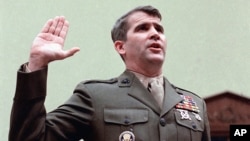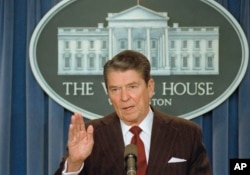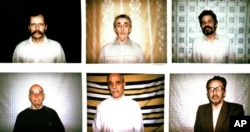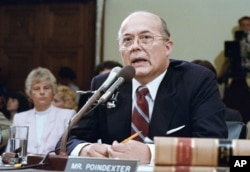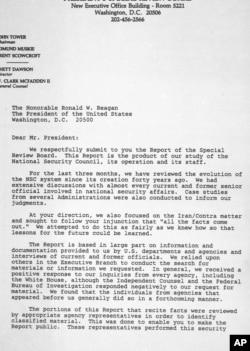Thirty years ago today, the Iran-Contra scandal erupted in the United States following the revelation that secret weapons sales to Iran, which was under an arms embargo, went to fund Nicaragua's Contra rebels seeking to overthrow their country's government.
The complex and illegal affair stemmed from the so-called “Reagan Doctrine," the idea that stopping the spread of communism around the globe was of the utmost importance, which meant supporting anti-Communist insurgents wherever they might be.
The operation involved selling arms to the Iranian regime, then diverting the profits to fund Nicaraguan rebels fighting Cuban-backed Sandinistas. The president believed the Contras were "the moral equivalent of our Founding Fathers."
The president’s other goal was the release of American hostages being held by Iranian terrorists in Lebanon.
In 1982, the Democratic-controlled Congress passed the Boland Amendment, which restricted CIA and Defense Department operations in Nicaragua specifically. A strengthened Boland Amendment passed two years later made support almost impossible.
In November 1986, the Lebanese newspaper Al-Shiraa, acting on a leak, reported on the Iran-Contra deal, which had not been approved by the U.S. Congress.
Reagan later denied the operation on national television.
The president later reversed himself, addressing the nation in a live televised address in August 1987.
The attorney general at the time, Edwin Meese, found that the U.S. government received only $12 million of the $30 million purportedly paid by Iran.
Lieutenant Colonel Oliver North of the National Security Council was a key figure in the scandal. North said he had diverted money from the arms sales to the Contras, and that National Security Adviser John Poindexter was fully aware of what was going on.
Poindexter resigned, and North was fired. Amid the scandal, questions were raised as to what Reagan might have known.
The president appointed the Tower Commission to investigate the scandal, and it found the president's hands-off approach and detachment from the oversight of his White House led to a scenario that made possible the funneling of money to the Contras; yet, there was no hard evidence connecting Reagan to the diversion.




